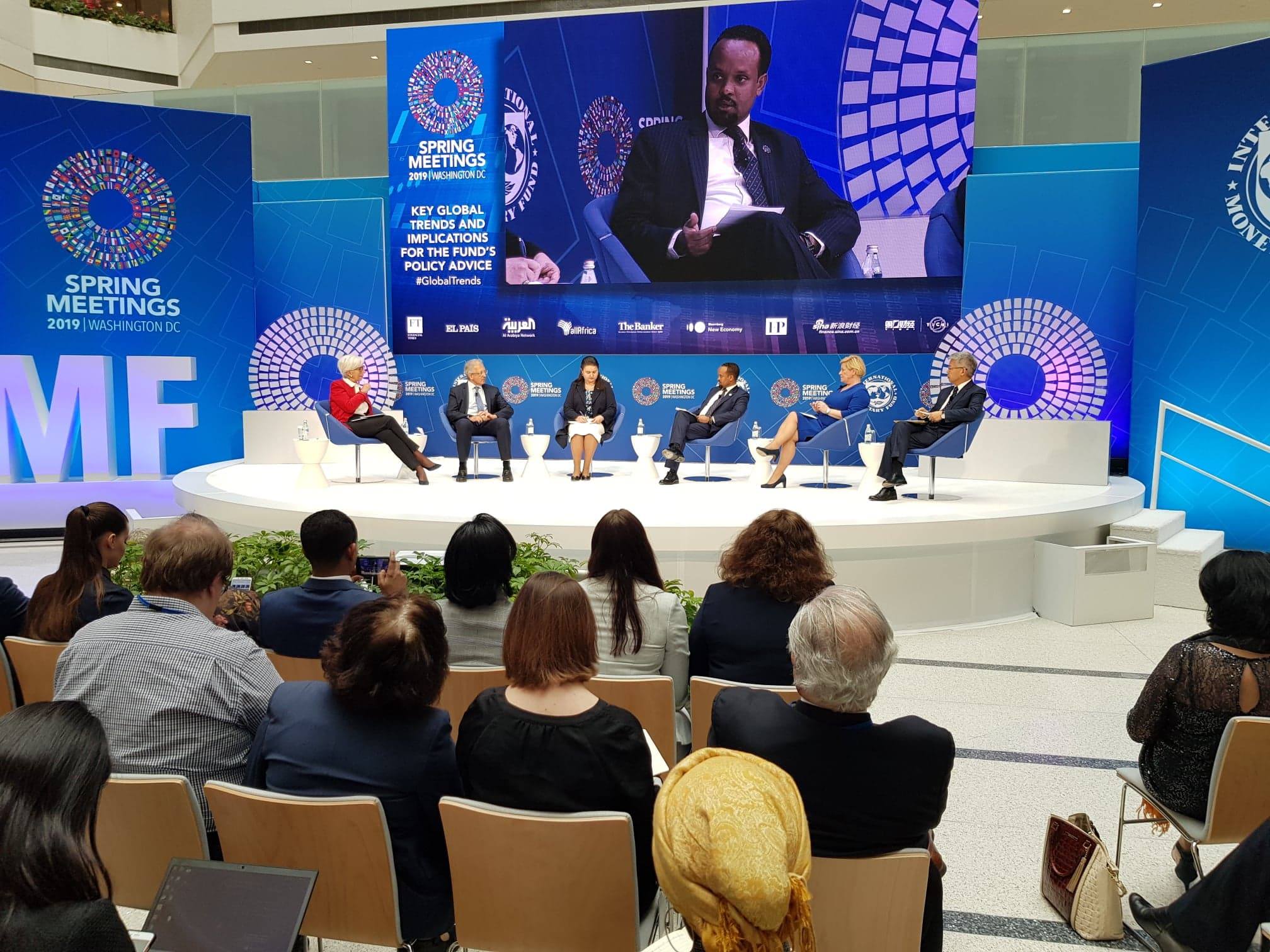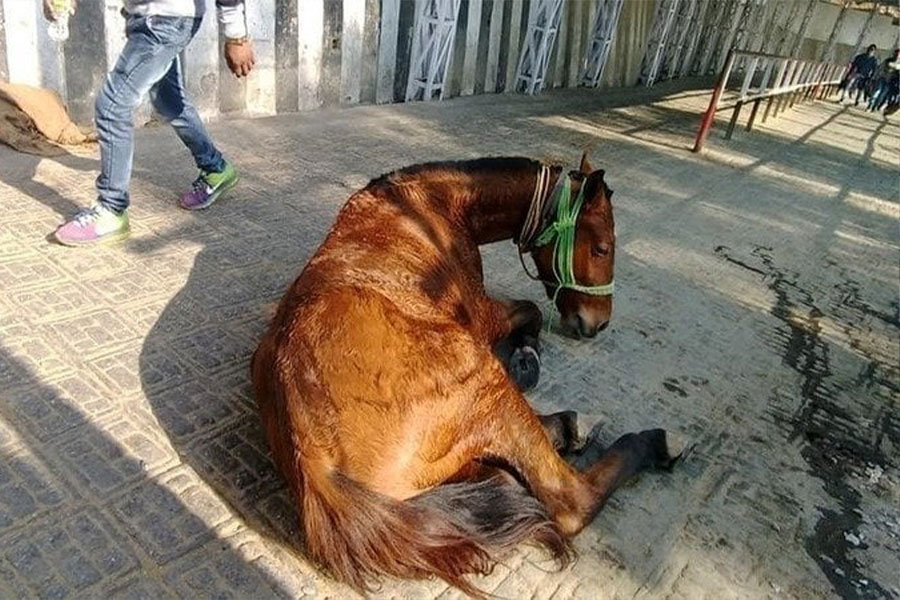
Fortune News | Apr 13,2019
May 27 , 2023
By Anne O. Krueger
China’s rise as emerging and developing economies’ largest bilateral creditor has frustrated deals on debt restructuring. It has insisted on lending to debtor countries whatever they need to cover their obligations, writes Anne O. Krueger, a former World Bank chief economist and former first deputy managing director of the IMF, in this commentary provided by Project Syndicate (PS).
Recent headlines seem to augur a global debt crisis.
The United States is teetering on the precipice of a self-inflicted default. Egypt, Ghana, Pakistan, and many other countries face grave financial difficulties. Italy and Japan’s debt burdens have grown heavier. And the Chinese are delaying or hampering multilateral efforts to restructure low- and middle-income countries’ debt.
The International Monetary Fund (IMF) counts 41 countries as being heavily indebted, and that does not include middle-income countries such as Argentina, Pakistan, and Sri Lanka.
The concerns these stories have fueled are real, but there are fundamental differences between them. The US has the capacity to service its debts, and it has been a reliable borrower for many years. Its problem is political.
By contrast, the question for poorer countries is whether or how much they can repay. Many heavily indebted low-income countries have debt levels that are already unsustainable or will be soon. Some have missed payments or announced that they will have to suspend debt service.
Private lenders have responded by refusing to lend more.
But this cohort of indebted countries can be broken down into two groups. Some countries were in relatively satisfactory positions until COVID-19 forced them to borrow more to finance pandemic-related expenditures. International financial institutions have created special facilities to help these countries secure rapid additional financing, and to sustain normal financing as their economies recover.
The other group already had high and rising debts before COVID-19, often because they had splurged on projects with low or negative rates of return. Sri Lanka is a case in point.
A new government took office in 2019 and cut taxes dramatically, increasing already large fiscal deficits and borrowing even more. While ill-advised domestic policies – notably prohibiting imported agricultural inputs – sharply reduced the country’s agricultural production, the government spent down its foreign-exchange reserves and then borrowed at higher interest rates (especially from China) until it could borrow no more.
Because many heavily indebted countries rely on imports for essential food, medicines, and intermediate goods, an inability to finance imports during a crisis can result in factory closures and a sharp decline in economic activity – as happened in Sri Lanka. Essentials will remain scarce until the afflicted country acquires the foreign exchange needed to finance renewed import flows.
In these cases, the IMF works with the government to formulate policies to enable the country to restore growth and creditworthiness. If the IMF did not insist on such reforms, it would merely be increasing the country’s indebtedness and postponing an inevitable reckoning.
Hence, to ensure that the country follows through, the IMF generally disburses funds in tranches as reforms are carried out, with the initial disbursement enabling a resumption of import flows and debt servicing.
Recognising the impact of such crises on the poor, some observers have called for debt reduction and new funds to be offered without any condition that the country corrects the policy failures that led to extreme indebtedness. But in assuming that new lending will help the poor, they fail to see that this is often a case of “throwing good money after bad.”
In many cases, one reason why the country is poor is that its previously accumulated debt went toward low-productivity investments.
Despite the lengthy process the IMF undertakes before agreeing to a program, additional complications may emerge after it is established. When the IMF deems a country’s debt burden too heavy for it to sustain its debt-servicing requirements, restructuring of sovereign debt must be part of the agreed IMF program and negotiated with private and public creditors.
Sometimes, reforms and IMF money can help a country achieve growth and finance its debt service. But in other cases, the debt has become so large that it is unreasonable to expect the government to resume servicing it fully.
To address this issue, officials from the creditor countries’ governments will meet and agree on debt-restructuring terms, which might include a reduction in the face value of the debt, a rescheduling of principal repayments, or even a grace period. Traditionally, private creditors will also participate in these talks and agree to a haircut on outstanding debt.
But China’s rise as emerging and developing economies’ largest bilateral creditor has frustrated matters. The Chinese have been reluctant to restructure debts, and have insisted on lending to debtor countries whatever they need to cover their obligations. If the IMF disbursed funds under those conditions, some portion of them would go to repay China, which would then be treated more favourably than other creditors.
IMF programs, therefore, cannot be implemented until all creditors have reached a restructuring agreement.
Sri Lanka could not receive funds from the IMF for months because the Chinese refused to take a haircut on loans they had made. Instead, they wanted to lend even more money to Sri Lanka so that it could service its debt (and increase its overall debt to China). Likewise, Zambia’s restructuring has been delayed since November 2020.
True, China finally has made arrangements with several countries to enable the IMF to disburse funds. But many other indebted countries still need to undertake policy reforms in accordance with an agreed IMF program, which means that more delays can be expected.
One hopes that China will see that it is in its own interest to devise a smoother, faster process for policy reforms and debt restructuring.
PUBLISHED ON
May 27,2023 [ VOL
24 , NO
1204]


Fortune News | Apr 13,2019

Commentaries | Jan 07,2024

Editorial | Sep 16,2023

View From Arada | May 24,2025

Commentaries | Sep 07,2019

Viewpoints | Sep 08,2024

Obituary | Dec 05,2020

Editorial | Jul 17,2022

Editorial | Apr 04,2020

Viewpoints | Jul 29,2023

My Opinion | 131819 Views | Aug 14,2021

My Opinion | 128203 Views | Aug 21,2021

My Opinion | 126147 Views | Sep 10,2021

My Opinion | 123767 Views | Aug 07,2021

Dec 22 , 2024 . By TIZITA SHEWAFERAW
Charged with transforming colossal state-owned enterprises into modern and competitiv...

Aug 18 , 2024 . By AKSAH ITALO
Although predictable Yonas Zerihun's job in the ride-hailing service is not immune to...

Jul 28 , 2024 . By TIZITA SHEWAFERAW
Unhabitual, perhaps too many, Samuel Gebreyohannes, 38, used to occasionally enjoy a couple of beers at breakfast. However, he recently swit...

Jul 13 , 2024 . By AKSAH ITALO
Investors who rely on tractors, trucks, and field vehicles for commuting, transporting commodities, and f...

Jul 5 , 2025
Six years ago, Ethiopia was the darling of international liberal commentators. A year...

Jun 28 , 2025
Meseret Damtie, the assertive auditor general, has never been shy about naming names...

Jun 21 , 2025
A well-worn adage says, “Budget is not destiny, but it is direction.” Examining t...

Jun 14 , 2025
Yet again, the Horn of Africa is bracing for trouble. A region already frayed by wars...

Jul 6 , 2025 . By BEZAWIT HULUAGER
The federal legislature gave Prime Minister Abiy Ahmed (PhD) what he wanted: a 1.9 tr...

Jul 6 , 2025 . By YITBAREK GETACHEW
In a city rising skyward at breakneck speed, a reckoning has arrived. Authorities in...

Jul 6 , 2025 . By NAHOM AYELE
A landmark directive from the Ministry of Finance signals a paradigm shift in the cou...

Jul 6 , 2025 . By NAHOM AYELE
Awash Bank has announced plans to establish a dedicated investment banking subsidiary...